A Look at the Most Unique FPS Game Mechanics
1 January 2025
When it comes to first-person shooters (FPS), we all know the basics: pick your weapon, aim, shoot, reload, and repeat. But let’s be real—how many times can you play the same formula before it gets a little, well… stale? That’s where developers with a knack for breaking the mold come in. Over the years, some FPS games have introduced truly unique mechanics that not only kept gamers on their toes but changed how we think about the genre altogether.
In this article, we’re diving headfirst into some of the most unique FPS game mechanics out there. Buckle up—you’re in for a wild ride with gravity-defying stunts, mind-bending time manipulation, and some downright crazy mechanics that made these games unforgettable.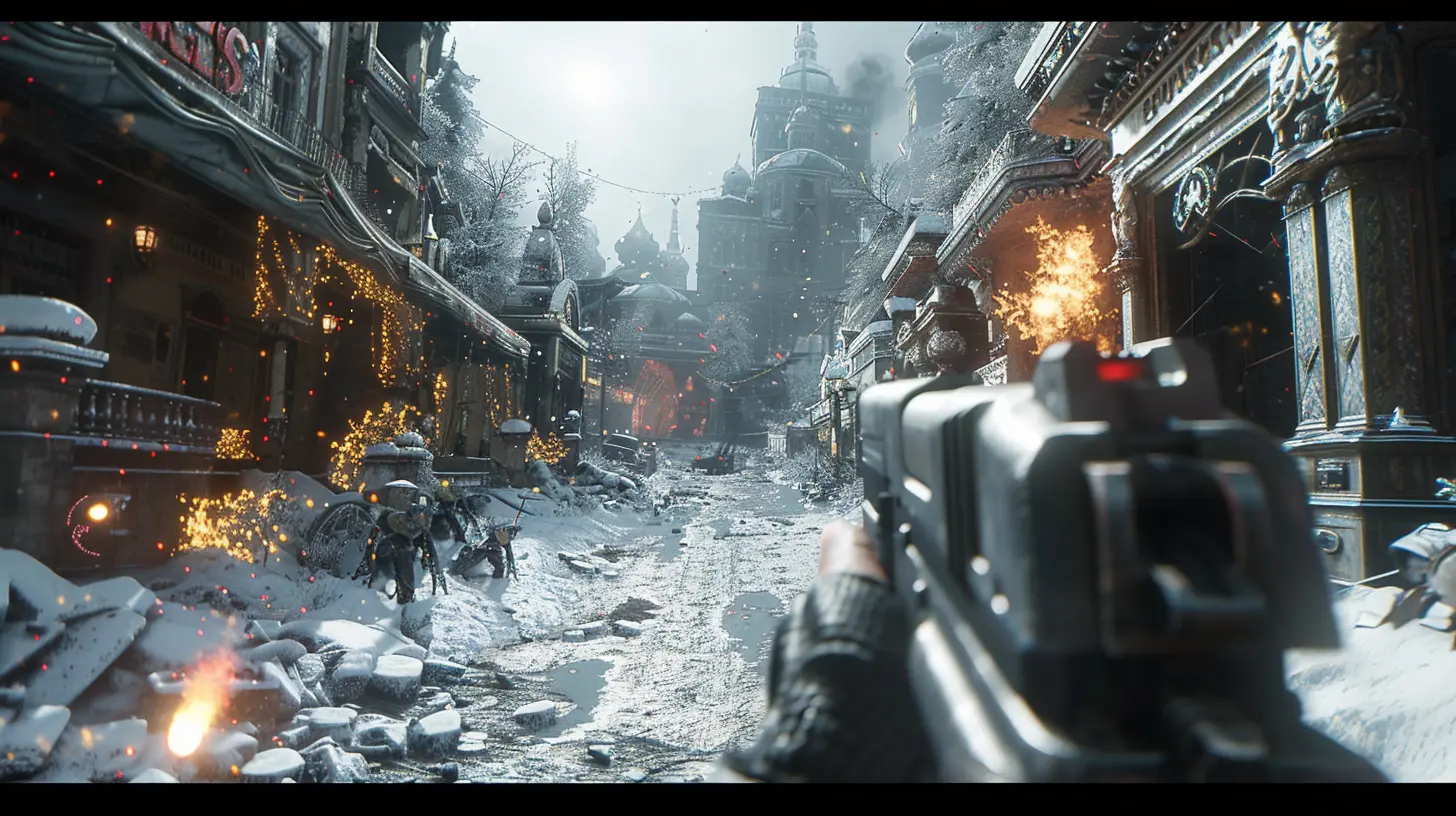
What Makes an FPS Mechanic “Unique”?
Before we get into the meat of things, let’s define what we mean by "unique." It’s not just about slapping on a gimmick or adding flashy visuals—nope, it’s deeper than that. A unique FPS mechanic is one that fundamentally changes how you play the game. It could be something that messes with physics, redefines your objectives, or gives you new ways to interact with the virtual world.Think about FPS games like food—sure, you’ve got your classic burger-and-fries combo (Call of Duty, anyone?), but then there’s that weird sushi taco you didn’t know you needed (we’ll get to those games shortly). These mechanics make you stop and think, “How did they even come up with this?”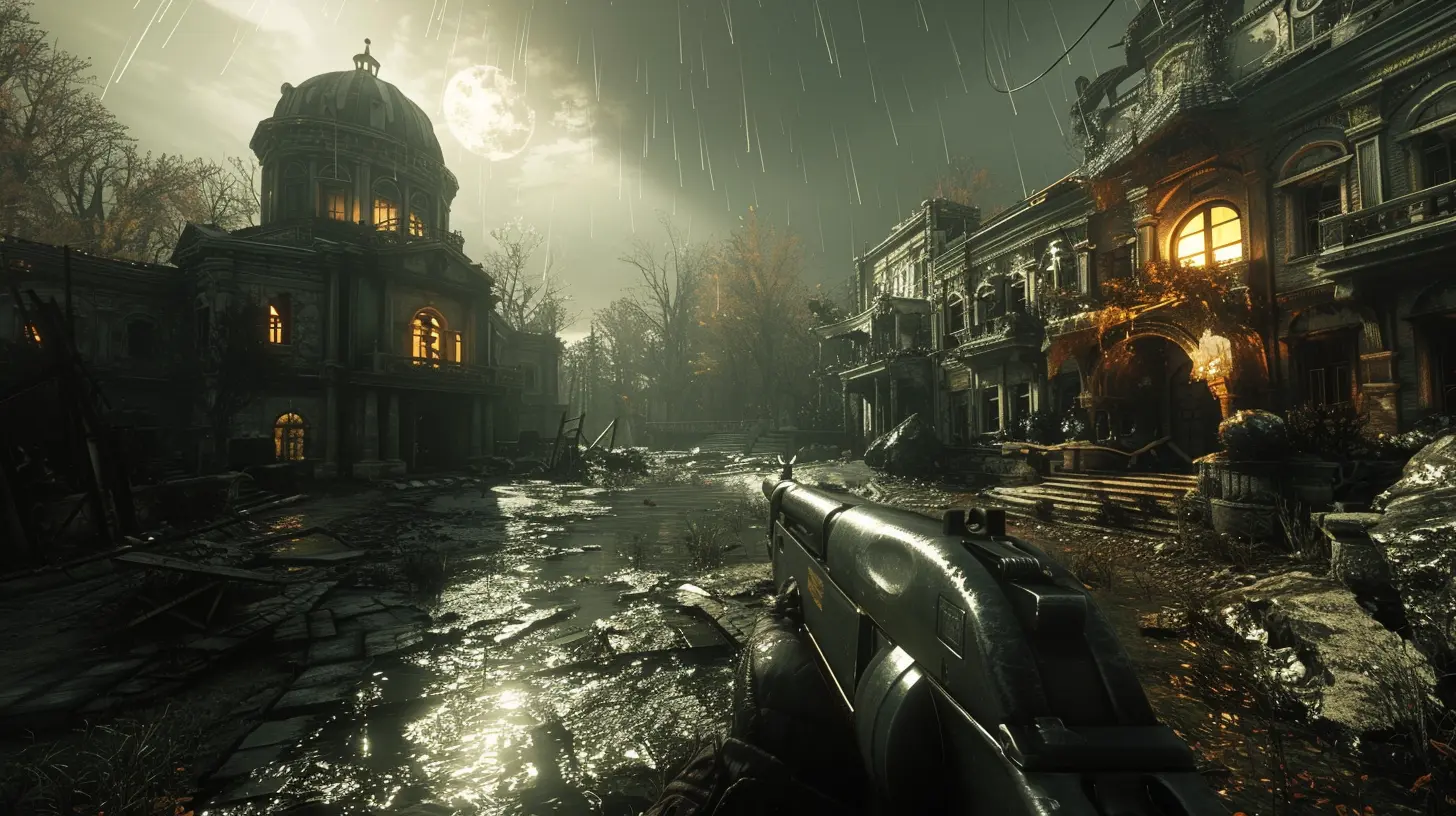
Time-Bending Shenanigans: Portal and Superhot
Let’s start with some heavy hitters in the "mind-bending mechanics" department.Portal: FPS Meets Puzzle Genius
If there’s one game that flipped the FPS genre on its head, it’s Portal (2007). Valve didn’t just give us an FPS—they gave us a physics-driven puzzle game where your gun doesn’t even shoot bullets. Instead, it shoots, well… portals.This game turned your understanding of space and movement into silly putty. Need to get to a ledge? Shoot one portal under your feet and another up there, and voilà, instant shortcut. While it wasn’t about shooting enemies (unless you count those pesky turrets), Portal showed us that the FPS genre could be so much more than spraying bullets. Honestly, without your trusty Portal Gun, you’re just running circles in test chambers—and that’s no fun.
Superhot: Time Only Moves When You Do
Ever wished you could be the star of your own slow-motion action scene? Superhot (2016) has you covered. In this game, time only moves when you move. Stop moving, and bullets freeze mid-air. It’s like being Neo in The Matrix, but instead of dodging CGI Agent Smiths, you’re facing crystalline red enemies.The beauty of Superhot lies in its simplicity. It’s not about managing ammo or hiding behind cover—it’s about planning your every move like a chess master. Each level feels more like a meticulously choreographed dance than a chaotic firefight, and trust me, there’s nothing quite like nailing that perfect sequence of dodges, punches, and headshots. 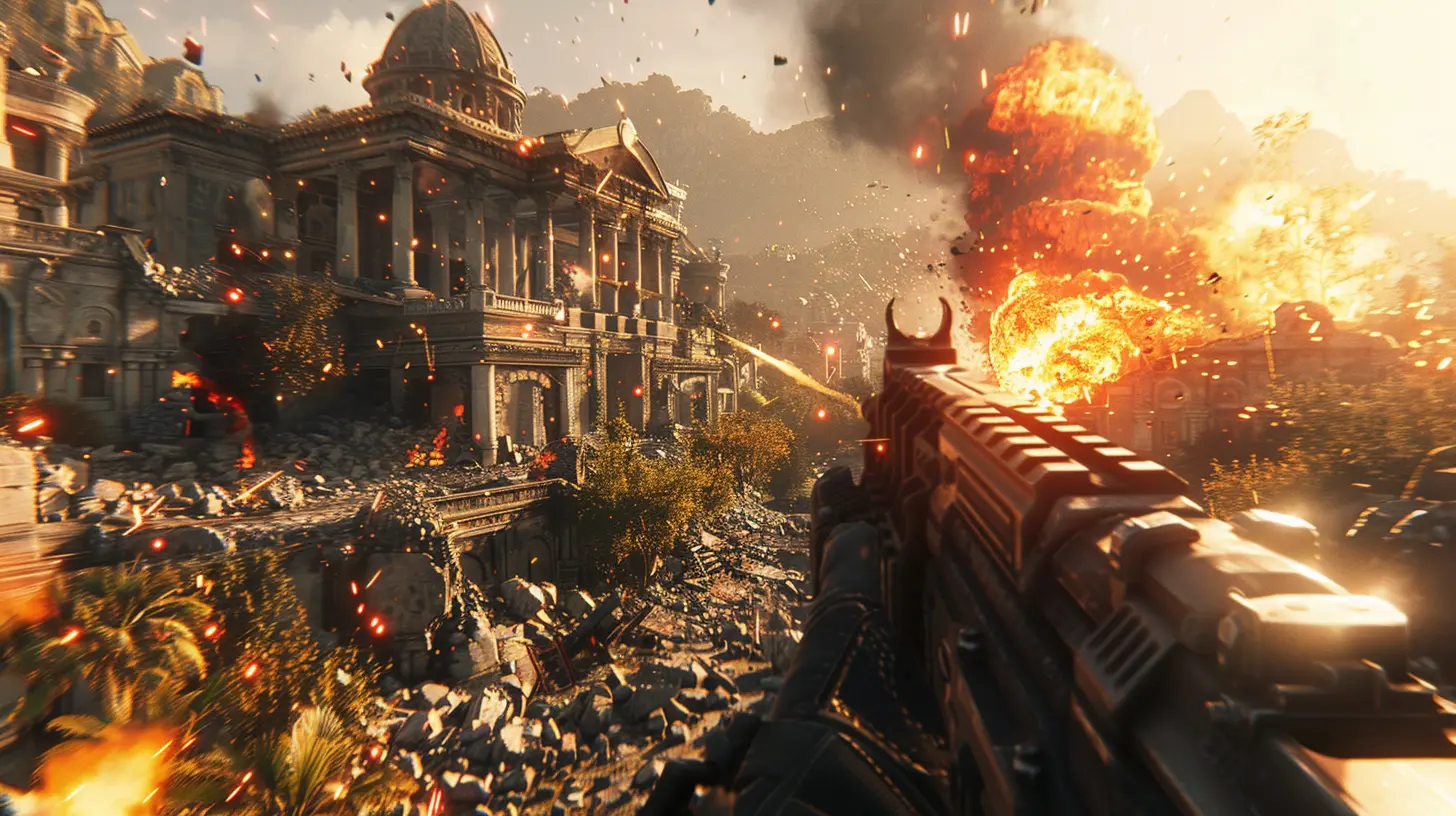
Messing with Physics: Titanfall 2 and Prey
Physics is the bread and butter of most FPS games, but when developers get creative with it, amazing things happen.Titanfall 2: Parkour and Giant Mechs
If you’ve ever played Titanfall 2 (2016), you know how satisfying it feels to wall-run while gunning down enemies, only to hop into a 20-foot-tall mech and bring the pain. What sets this game apart isn’t just the fast-paced, fluid combat—it’s how it integrates verticality and movement into every level.Most FPS games are about running from Point A to Point B on relatively flat ground. In Titanfall 2, that’s child’s play. Here, walls are your runways, and grappling hooks are your best friends. Add in the ability to pilot giant, weapon-loaded robots, and you’ve got a game that feels like sci-fi action on steroids. Oh, and let’s not forget the campaign’s time-traveling level. That was a chef’s kiss.
Prey: Mimicry and Anti-Gravity Madness
Arkane Studios’ Prey (2017) is practically a love letter to unique mechanics. First, let’s talk about the Mimic Matter ability—this lets you transform into everyday objects (yes, even a coffee cup) to outwit enemies or access hard-to-reach areas. FPS games are usually about destroying things, but Prey? It encourages you to become things. Wild, right?Then there’s the zero-gravity gameplay. Floating through space while fending off alien creatures is both thrilling and terrifying. It adds a whole new dynamic to combat because suddenly, up, down, and sideways don’t really exist anymore.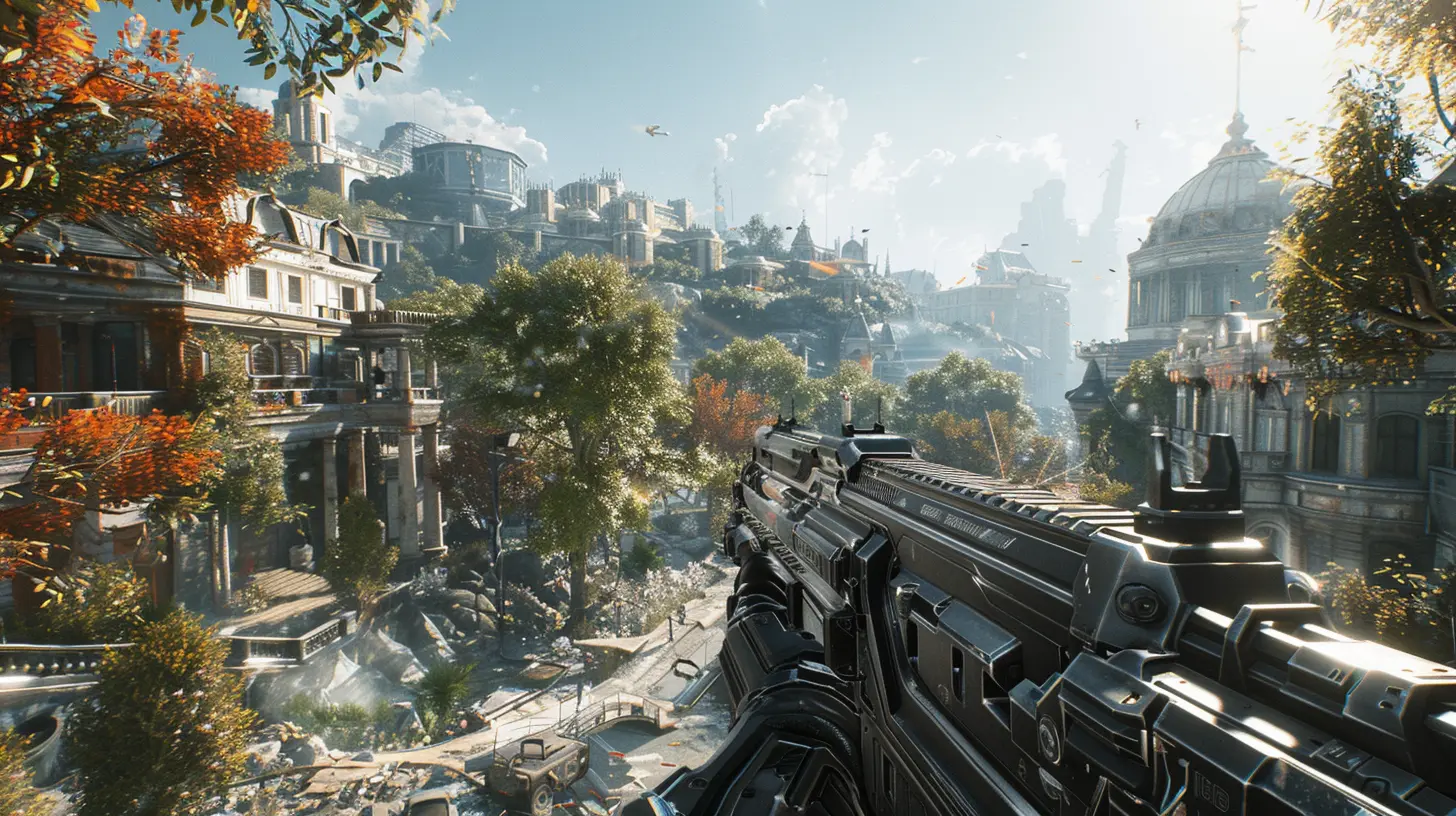
Narrative as a Gameplay Mechanic: Bioshock and Spec Ops: The Line
Sometimes, it’s not just the shooting that’s unique—it’s how the story and gameplay mechanics intertwine.Bioshock: The Moral Dilemma
When Bioshock (2007) dropped, it wasn’t just another shooter. Sure, you had guns, but you also had plasmids—genetic modifications that gave you powers like shooting lightning or summoning swarms of bees. But what really made Bioshock stand out was its moral choice mechanic. Do you save the Little Sisters and be rewarded with less immediate power, or harvest them to gain more Adam (the currency for upgrades) at the expense of their lives?The game forced players to question their morality in a way most FPS titles don’t. Add in the jaw-dropping “Would you kindly” twist, and Bioshock became a benchmark for storytelling in gaming.
Spec Ops: The Line: Psychological Warfare
This one’s heavy. Spec Ops: The Line (2012) isn’t about flashy mechanics or crazy physics—it’s about messing with your head. The game takes the standard military shooter trope and flips it on its head, delivering gut-punch after gut-punch. The choices you make are brutal, often leaving you questioning, “Am I the bad guy?”While not a mechanical gimmick, the way Spec Ops weaves narrative and gameplay together is deeply unsettling—and that’s what makes it unique.
FPS Meets Rogue-likes and Survival: Hunt: Showdown and Escape from Tarkov
Sometimes, blending genres is the secret sauce.Hunt: Showdown: PvPvE Madness
Crytek’s Hunt: Showdown (2019) feels like a mash-up of survival horror, battle royale, and FPS. You and your team hunt down monstrous bosses while fending off other player-controlled bounty hunters. What’s wild here is that it’s just as much about what you don’t do as what you do. Make too much noise, and you’ll give away your location. Die, and you lose your character for good (permadeath, baby). It’s a high-stakes game of cat-and-mouse that’ll have you sweating bullets.Escape from Tarkov: Hardcore Survival
Now, Escape from Tarkov (2017) doesn’t hold your hand. It drops you into a hyper-realistic war zone and says, “Good luck, buddy.” You’ll need to manage your gear, scavenge for supplies, and survive against human and AI enemies. Oh, and if you die? Kiss everything in your inventory goodbye. The sheer stress of trying to extract safely after looting makes every raid feel like an adrenaline-fueled nightmare (in the best way possible).Wrapping It Up
FPS games have come a long way from being just "point and shoot." With each new innovation, developers redefine what’s possible in the genre, keeping it fresh and exciting. From bending time and gravity to grappling with moral dilemmas or surviving harsh environments, these unique mechanics remind us why we fell in love with gaming in the first place.So, the next time you’re blasting through hordes of enemies, take a moment to appreciate the creativity and thought that go into these games. After all, the difference between a good FPS and a great one often comes down to that one mechanic that makes it unforgettable.
What’s your favorite unique FPS mechanic? Did we miss one that deserves the spotlight? Let us know—because, honestly, we’re all ears when it comes to geeking out about gaming.
all images in this post were generated using AI tools
Category:
First Person ShooterAuthor:

Kaitlyn Pace
Discussion
rate this article
13 comments
Gideon McGehee
Forget gravity and traditional reloading! In this FPS world, when you run out of ammo, you just throw your weapon at enemies and hope for the best. Talk about a 'bullet' point!
February 7, 2025 at 4:17 PM

Kaitlyn Pace
Thanks for the fun comment! Innovative mechanics like weapon throwing definitely add a fresh twist to gameplay. It's all about creativity in FPS design!
Harvey Brown
Innovative mechanics transform FPS games, enhancing immersion and strategy—proving creativity is as vital as firepower.
January 31, 2025 at 3:21 PM

Kaitlyn Pace
Thank you! Indeed, unique mechanics not only elevate gameplay but also deepen player engagement, making innovation crucial in the FPS genre.
Gunner Miller
Great insights on unique FPS mechanics! It's fascinating how innovative gameplay can change the way we experience shooting games. Excited to see what developers create next!
January 26, 2025 at 4:51 AM

Kaitlyn Pace
Thank you! I’m glad you found the insights interesting. It’s an exciting time for FPS games, and I can’t wait to see how developers push the boundaries further!
Oriana McAndrews
Great insights! Love exploring unique FPS mechanics.
January 23, 2025 at 5:28 AM

Kaitlyn Pace
Thank you! I'm glad you enjoyed it—there’s so much creativity in FPS design!
Porter McLoughlin
What a fantastic exploration of innovative FPS mechanics! It's always refreshing to see how developers push boundaries and keep gameplay exciting. These unique elements not only enhance player experience but also inspire creativity within the gaming community. Thank you for shedding light on these game-changing features!
January 19, 2025 at 4:52 PM

Kaitlyn Pace
Thank you for your insightful comment! I'm glad to hear you enjoyed the exploration of these innovative mechanics—they truly are game-changers in the FPS genre!
Marley Moses
Great insights! Unique mechanics really elevate the FPS experience—love your analysis here!
January 15, 2025 at 5:04 AM

Kaitlyn Pace
Thank you! I’m glad you enjoyed the analysis and found the mechanics intriguing!
Andrea Jacobs
In realms where bullets dance and dreams collide, Unique mechanics spark a player's stride. From gravity bends to time’s gentle sway, These innovations breathe life into the fray, Transforming each moment, where gamers play.
January 13, 2025 at 4:06 PM

Kaitlyn Pace
Thank you for capturing the essence of innovation in FPS mechanics! Your words truly highlight how these unique elements elevate the gaming experience.
Sloane Reynolds
Thank you for highlighting these innovative FPS mechanics! It's fascinating to see how developers push boundaries to create unique gameplay experiences. I appreciate the insights shared in this article and look forward to exploring these games further. Keep up the great work!
January 10, 2025 at 5:40 PM

Kaitlyn Pace
Thank you for your kind words! I'm glad you found the article insightful. Enjoy exploring these innovative games!
Bradley McClendon
What a fantastic exploration of innovative FPS mechanics! It's refreshing to see how creativity shapes gameplay. Can't wait to try these out!
January 5, 2025 at 3:47 AM

Kaitlyn Pace
Thank you! I'm glad you enjoyed the exploration of these mechanics. I hope you have fun trying them out!
Brick Thomas
Intriguing exploration of FPS mechanics! I’m particularly interested in how these unique features enhance player engagement and strategy. Which mechanics do you think have the potential to redefine the genre in the future?
January 3, 2025 at 5:21 PM

Kaitlyn Pace
Thank you! Mechanics like dynamic environmental interactions and advanced AI behaviors have great potential to redefine FPS gameplay by adding depth to player strategies and enhancing immersion.
Lanae McKellar
Revolutionizing play, artful innovation.
January 2, 2025 at 6:01 PM

Kaitlyn Pace
Thank you! I'm glad you found the exploration of innovative mechanics inspiring.
Chloe McNab
Inventive mechanics redefine FPS genre dynamics.
January 2, 2025 at 4:00 AM

Kaitlyn Pace
Thank you! Indeed, innovative mechanics are reshaping the FPS landscape and enhancing gameplay in exciting ways.
Sydney Barker
This article brilliantly highlights the innovative mechanics that set unique FPS titles apart. From gravity-defying movement to environmental manipulation, these features not only enhance gameplay but also redefine player engagement. It's fascinating to see how creativity continues to push the boundaries of the first-person shooter genre!
January 1, 2025 at 5:13 PM

Kaitlyn Pace
Thank you for your insightful comment! I'm glad you found the exploration of unique FPS mechanics engaging. It's exciting to see how innovation shapes the genre!
MORE POSTS

Post-Apocalyptic Adventures: Surviving the End of the World in Style

Where to Find the Best Deals on Game Expansions

Is It Worth the Replay? Games that Get Better the More You Play

How Streaming Has Changed the Way We Play Social Games

Third-Person Shooters with Unforgettable Boss Fights

Interactive Storytelling Meets VR: A New Era of Immersive Narratives
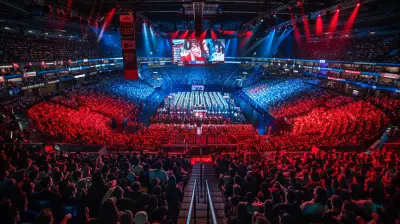
The Legal Challenges Facing the E-Sports Industry
Villains to Love: Iconic Antagonists You’ll Never Forget

Card Games for a Family Game Night With All Ages